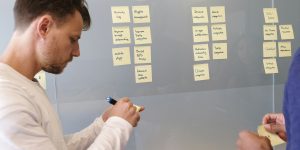As my co-op term at BC Hydro neared its completion, an unexpected twist put my adaptability and problem-solving skills to the test. With the project report finalized and our conclusions drawn, a senior company executive introduced a new set of requirements with just five weeks to spare. This moment was pivotal, not just for the project's trajectory but for my personal growth in professional communication and project management.
The executive's request, while insightful, posed significant challenges related to data quality and resource availability. It became clear that accommodating his full suite of suggestions would necessitate extensive manual data work, a resource-intensive task that our team, given our current commitments and bandwidth, could not feasibly undertake. This scenario set the stage for a crucial learning experience—negotiating project scopes and setting realistic expectations with higher management.

In collaboration with my manager, we embarked on a strategic dialogue to bridge the gap between the executive's vision and our project's practical limitations. We advocated for the feasibility and value of our original findings while openly discussing the constraints we faced. It was a lesson in diplomacy and clarity, showcasing the importance of transparent communication in the face of unforeseen demands.
Despite these challenges, we found a middle ground that respected the executive's insights without compromising the integrity and timeline of our project. We proposed to spotlight a few case studies that could address some of the executive's concerns, offering a deeper dive into specific data points without the need for a complete project overhaul. Furthermore, we introduced a "Further Recommendations" section in our report, which included the executive's suggestions as avenues for future exploration. This approach not only preserved our original project scope but also acknowledged the value of the new perspectives, setting a roadmap for continued investigation beyond the confines of our co-op term.

This experience taught me the critical importance of flexibility and effective communication within the professional environment. I learned to navigate the delicate balance between adhering to a project's established scope and being receptive to new ideas, even when they arrive at seemingly inopportune moments. The ability to engage in constructive dialogue with stakeholders, including those in high positions, and to negotiate solutions that respect both the project's limitations and the stakeholders' vision, was a significant achievement.
Moreover, this challenge underscored the reality of project management—unforeseen requests and revisions are part of the landscape, requiring a proactive and adaptive approach. It reinforced the value of creative problem-solving, enabling us to enhance our project meaningfully without derailing our progress. This experience has prepared me for future roles where flexibility, clear communication, and strategic compromise are key to success, ensuring that I can effectively manage expectations and deliver results in dynamic and resource-constrained environments.